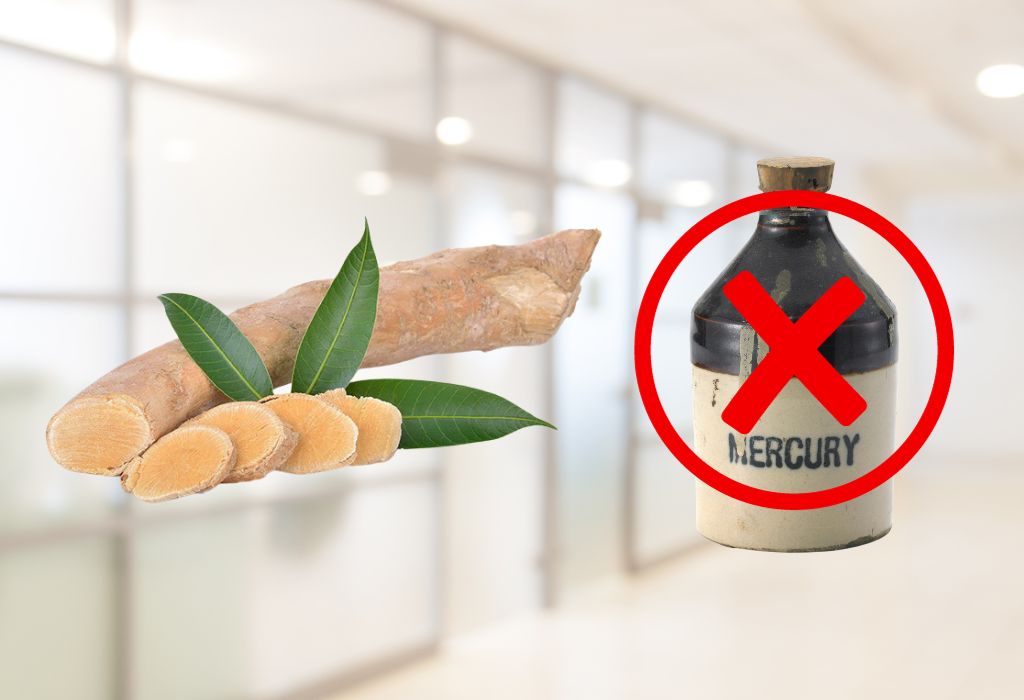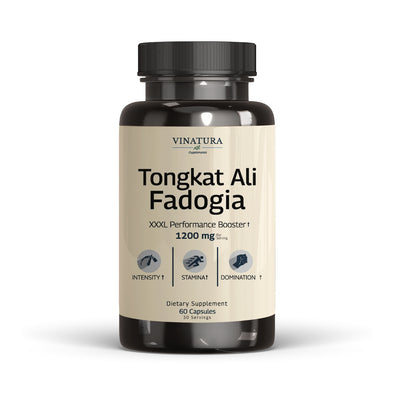
How to Look for Mercury-Free Tongkat Ali? Detail Guide
Tongkat Ali is a popular herb known for its ability to boost testosterone levels and enhance male sexual health.
However, it can sometimes contain harmful mercury and other heavy mentals, which poses serious health risks. So, how to look for a mercury-free Tongkat Ali? Here are some effective ways:
- Searching for products that have received third-party testing.
- Choosing products from reputable manufacturers.
- Opting for products with clear ingredient lists and transparent origins.
- Checking the label for a Certificate of Analysis (COA).
Before exploring further, please read the disclaimer located at the end of this webpage.
Key Takeaways
- Tongkat Ali fundamentally does not contain mercury or other heavy metals. However, environmental conditions and manufacturing processes that are not ensured may lead to mercury contamination in Tongkat Ali.
- The FDA does not disclose specific limits for metals in Tongkat Ali, but there are general regulations for the safety of dietary supplements.
- To find safe Tongkat Ali products free from mercury, it is advisable to use products from reputable brands, carefully read reviews, origins, labels, and certifications of the products.
Does Tongkat Ali Extract Contain Mercury and Other Heavy Metals?
In a 2006 study, Malaysia's Drug Control Authority (DCA) examined 100 products containing Tongkat Ali hitam using an atomic vacuum cleaner to determine the presence of the toxic heavy metal mercury.
The objective was to assess the mercury content in these products. The findings revealed that 26% of the tested products exhibited high mercury concentrations. [1]
Mercury is a toxic substance. It can cause serious damage to the central nervous system and gastrointestinal tract, kidney damage, and other diseases. [2]
Human activities are the primary source of mercury release into the environment, contaminating soil and water. [3]
This, in turn, leads to mercury pollution in areas where trees grow. Furthermore, inadequate production and processing practices increase the risk of mercury contamination in the final product.
Therefore, to ensure the selection of high-quality and safe Tongkat Ali, purchasing products from reputable sources that adhere to stringent quality control measures is advisable.
What is the FDA Safety Threshold Guideline for Tongkat Ali?
The US Food and Drug Administration (FDA) does not regulate the levels of metals in Tongkat Ali (Eurycoma longifolia) because it is not considered a food or drug.
Unfortunately, safety assessments regarding metal levels, especially mercury levels in Tongkat Ali, are primarily conducted in Malaysia, and products originate from there as we mentioned in above.
That's why you can't find the FDA Safety Threshold Guideline for Tongkat Ali and the scientific research in the US about it.
Fortunately, the FDA does have some general regulations for the safety of dietary supplements, including requiring manufacturers to follow Good Manufacturing Practices (GMPs) and ensuring that their products are labeled accurately.
Additionally, the FDA can take action against dietary supplement products that are found to be unsafe or misbranded.
While the FDA does not regulate the levels of metals in Tongkat Ali, according to scientific research, the safe daily dosage of Tongkat Ali is 200-300 mg of the standardized extract [5].
It is important to note that this is just a general guideline, and the optimal dosage may vary depending on the individual.
How to Find Mercury-Free Tongkat Ali?
Some ways for you to find quality and safe Tongkat Ali products that are as follows:
Search for Products that Have Received Third-party Testing
Look for Tongkat Ali extract that a third party has tested for purity and quality.
These tests are often located on the product manufacturer's label or website. Some reputable quality assurance certifications such as GMP, cGMP.
Manufacturer's Reputation
Choose products from reputable manufacturers. Companies with a history of producing high-quality herbal supplements often prioritize product safety and adhere to strict quality standards.
You can assess the credibility and reliability of the brand by its popularity on the internet, checking their Amazon page and reading reviews from actual buyers.
A small tip is to pay attention to the number of one-star ratings.
Ingredient Transparency is Crucial
Opt for products with clear ingredient lists and transparent origins.
Typically, manufacturers will provide comprehensive ingredient information on both product packaging and their website.
Check the Label for a Certificate of Analysis (COA)
A COA is a document that shows the results of testing for contaminants in a product.
Look for a COA that shows that the Tongkat Ali has been tested for mercury and other heavy mentals, and that the levels are below the acceptable limit.
Unfortunately, there's no such thing as truly "mercury-free" Tongkat Ali since it can occur naturally in very low amounts.
However, safe levels are well below the amount that could cause harm.

Where Can You Buy Tongkat Ali Without Mercury?
You can find a reputable Tongkat Ali seller on the market in many ways. You can buy from the following places:
- Online Retailers: Choose popular online retailers specializing in health and wellness products. However, you must check product ingredients, third-party testing, and certification information.
- Buy directly from the Manufacturer: You can buy products directly from product manufacturers, and you can search for information, certificates, and origins of their products easily.
- E-commerce platforms like Amazon: Search and discover reputable e-commerce platforms like Amazon. You can find a variety of products to meet your needs. However, be cautious and verify product details, reviews, and seller reputation before deciding.
- Quality products may have obtained analytical certification from 3rd parties in the United States: Certification of Identity, Certification of Bacteria and Metals, Certification of Physiological Enhancement.

Why Should You Look for A Tongkat Ali Extract Without Mercury?
Looking for a mercury-free Tongkat Ali extract is crucial for several important reasons:
- Promoting health safety: Mercury, a toxic heavy metal, can have severe health effects, particularly on the nervous system, kidneys, and other organs, when consumed in excessive amounts.
- Ensuring product effectiveness: Tongkat Ali extract that does not contain mercury will be highly effective. Contaminated products may not provide the intended benefits and may adversely affect your health.
- Avoid long-term health risks: Continuous consumption of mercury-contaminated products and other heavy mentals can lead to chronic health problems over time.

Frequently Asked Questions
Is Tongkat ali Toxic?
Tongkat Ali is considered safe when using products from reputable brands that are rigorously tested, and it's crucial to adhere to the manufacturer's dosage instructions.
Tongkat Ali does not contain toxic substances harmful to the body.
However, the potential danger lies in environmental pollution in the areas where Tongkat Ali grows, which can lead to contamination with heavy metals such as mercury, lead, cadmium, and arsenic.
Which is the Most Refined Variation of Tongkat Ali?
Tongkat Ali has many variations, but the strongest and most refined is generally recognized for its higher concentration of bioactive compounds, especially eurycomanone. Eurycomanone is the chemical compound responsible for the beneficial effects of Tongkat Ali. The high concentration of Eurycomanone will enhance the convenience and effectiveness of consuming this herb.
What is the Optimal Type of Tongkat Ali?
Currently, Tongkat Ali is being processed as a health supplement in many forms, such as extract, capsules, root powder, etc. Among them, root extract contains various chemical compounds that provide many health benefits. When it comes to root extracts, golden Tongkat Ali (which comes from Eurycoma Longifolia) contains more beneficial compounds than other roots. [4]
What Are the Three Classifications of Tongkat Ali?
Tongkat Ali has three types: black, yellow, and red. Each type is derived from different plants: yellow – Eurycoma Longifolia; black – Polyalthia Bullata; red – Stema Tuberosa. Research has shown that the yellow Tongkat Ali has biological aphrodisiac activity and is the most widely used. [4]
Does Tongkat Ali Contain Mercury?
While mercury contamination in Tongkat Ali supplements is not widespread, research indicates that there is a risk of contamination if the herbs are grown in a polluted environment or processed improperly. [1] Therefore, you must buy Tongkat Ali without mercury from a reputable and quality source to ensure your health and safety.
Conclusion
In short, using Tongkat Ali supplements containing mercury is a hazard to everyone's health. However, it can be avoided by purchasing products from reputable sources and ensuring third-party testing. Hope you got the answer to how to look for a Tongkat Ali without mercury.
References
- [1] Hooi Hoon Ang, & Lee, K. L. (2006). Contamination of mercury in tongkat Ali hitam herbal preparations. Food and Chemical Toxicology, 44(8), 1245–1250. https://doi.org/10.1016/j.fct.2006.01.014
- [2] Hui-Seong, L. (2016). Determination of Mercury by Cold Vapor Atomic Absorption Spectrophotometer in Tongkat Ali Preparations Obtained in Malaysia - Hooi-Hoon Ang, Ee-Lin Lee, Hui-Seong Cheang, 2004. International Journal of Toxicology. https://journals.sagepub.com/doi/full/10.1080/10915810490269654
- [3] Li, P., Feng, X., Qiu, G., Shang, L., & Li, Z. G. (2009). Mercury pollution in Asia: A review of the contaminated sites. Journal of Hazardous Materials, 168(2-3), 591–601. https://doi.org/10.1016/j.jhazmat.2009.03.031
- [4] Comparison of Three Aphrodisiac Plants (Eurycoma longifolia, Polyalthia bullata and Stema tuberosa) Synonymous with Tongkat Ali. (2023). Tropical Journal of Natural Product Research, 7(5), 3002–3008. https://doi.org/10.26538/tjnpr/v7i5.24
- [5] Bhat, R., & Karim, A. A. (2010). Tongkat Ali (Eurycoma longifolia Jack): A review on its ethnobotany and pharmacological importance. Fitoterapia, 81(7), 669–679. https://doi.org/10.1016/j.fitote.2010.04.006
Author

Product Disclaimer
The dietary supplement products mentioned on this website are formulated based on scientific research and adhere to FDA guidelines for dietary supplements. However, the content of the articles has not been evaluated by the Food and Drug Administration (FDA) and is not intended to promote or endorse any specific product. Any products sold on this website are not intended to diagnose, treat, cure, or prevent any disease.
Opinions and Endorsements
Any claims, statements, or opinions expressed in the articles are those of the author(s) and do not necessarily reflect the views or opinions of the manufacturers of the dietary supplement products. The products sold on this website are separate from the content of the articles and are not directly endorsed or associated with the information presented here.
Liability Disclaimer
The author(s) of the articles, website, and manufacturers of the dietary supplement products do not assume any liability for any potential consequences arising from the use of the information provided in the articles. It is recommended that individuals consult with a qualified healthcare professional before making any dietary or lifestyle changes, including the use of dietary supplements.
Product Usage
Please refer to the product labels and packaging for specific usage instructions and guidelines for the dietary supplement products sold on this website.
Customer Support
For any concerns or questions regarding the dietary supplement products, please contact our customer support team, who will be more than happy to assist you.






Leave a Comment
Be the first to comment.
What do you think?